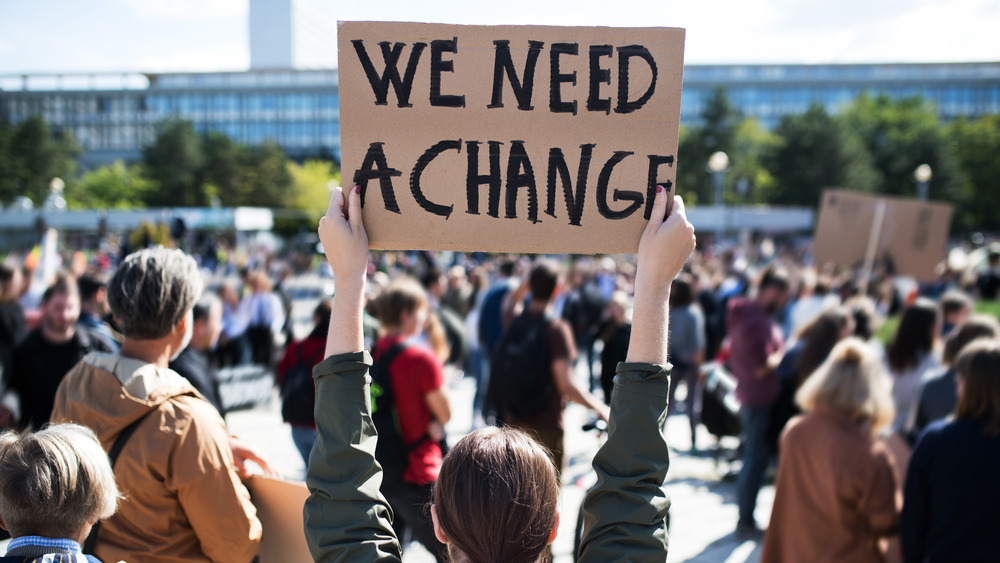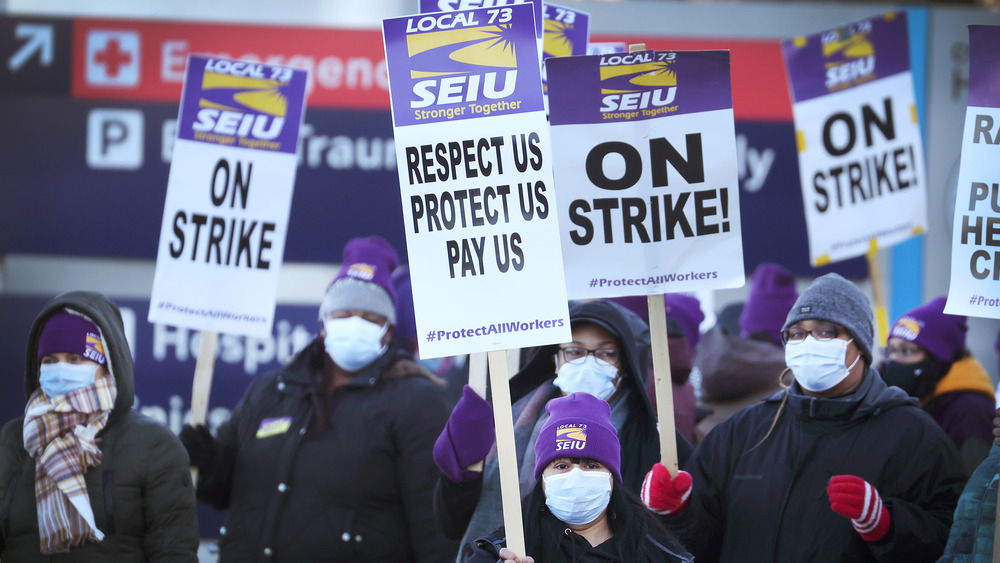Fast-Food Workers Across The US Will Be Striking On January 15. Here's Why
Essential workers have had an incredibly hard time during the pandemic, and we shouldn't expect anything to change anytime soon. According to The New York Times, yesterday's COVID-19 case count has risen 34 percent compared to the past 14 days, while daily death tolls hover near 4,000. Anyone in the customer service industry especially feels this pressure, and the patience of many has reached a bursting point.
According to Business Insider, restaurant workers at fast-food giants like Wendy's and McDonald's plan to go on strike on January 15 to demand increasing the federal minimum wage to $15 an hour and the right to unionize. While some participating cities like Detroit or Durham plan to directly strike to raise the minimum wage, restaurants located in major cities like Los Angeles or Chicago that already have a $15 minimum wage plan to go on strike in solidarity with the other branches. Additional impacted cities include Charleston, Flint, Houston, Kansas City, Los Angeles, Miami, Milwaukee, Memphis, Oakland, Orlando, Sacramento, St. Louis, Fort Lauderdale, and Tampa, with planned car caravans and Zoom strike lines (via Business Insider).
President-elect Joe Biden has also backed the sentiment, tweeting that he hopes that a bill requiring a federally mandated $15 per hour wage moves quickly through the House and Senate (via Business Insider). While we may not know the outcome of these protests that commence tomorrow, demonstrations like this have had some positive outcomes in the past.
A strike that can change the future of fast food
This movement follows protests in the past year aimed at raising the health and standards of restaurant workers in this new era of existence. According to the Chicago Morning Star, restaurant employees from more than 50 fast-food establishments in Chicago launched major protests in April 2020 to demand more safety regulations to protect them from coronavirus, following similar successful demonstrations in California. Certain companies have already begun mandating a minimum wage of $15 per hour at specific locations. According to Business Insider, Starbucks has already started paying its employees a minimum of $15 per hour at certain locations, with the change gradually settling in across all locations over the next three years.
Only time can tell the outcome of these planned strikes, but with any luck, the long-term effects will result in an increased quality of life for all essential workers. If you have been craving a burger, tomorrow probably won't be the easiest day to visit a fast-food restaurant, so make sure to plan accordingly. Keep an eye peeled for what develops next, and hopefully, essential food workers can have an easier time in 2021.

